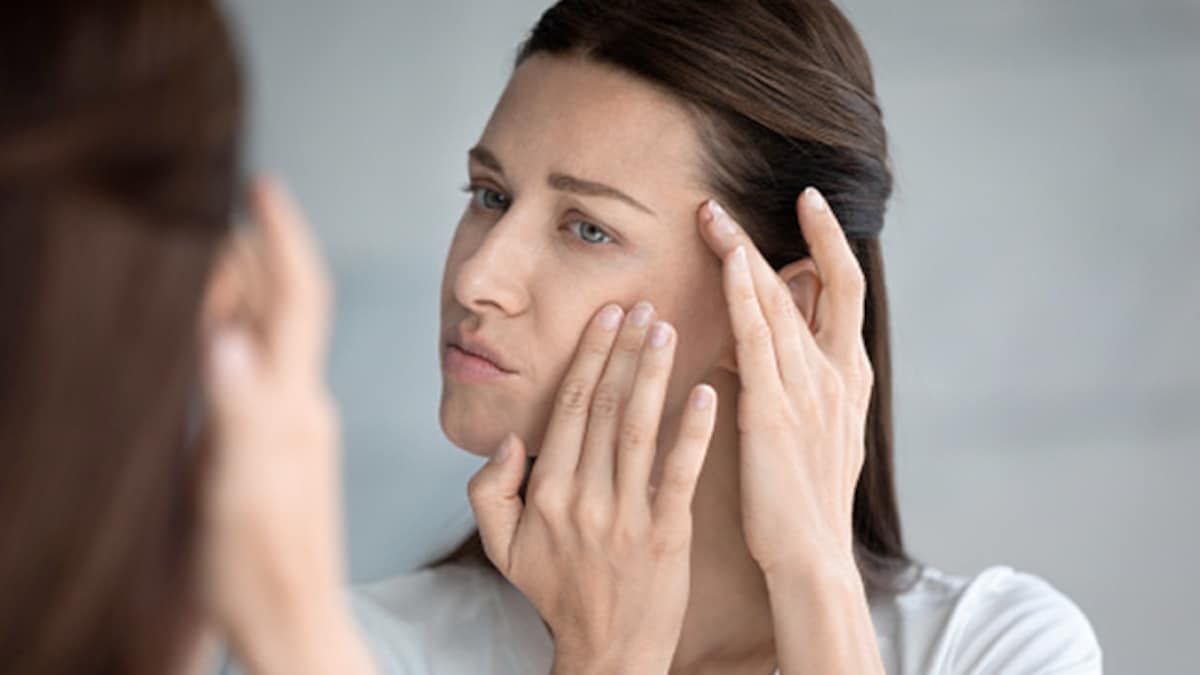Most of us are more cautious when it comes to skin and hair care. Whether we’re buying the latest hair or skin products or trying out remedies by watching videos on social media, we’re always on the lookout for better solutions. After all, who doesn’t want their skin to have a natural glow and their hair to look like it just got a blow-dry treatment? While serums and oils can help, you won’t see the desired results if you’re lacking collagen in your body. Collagen Collagen is a protein that provides structure and strength to skin, hair, connective tissues, and organs. If your diet is lacking in collagen, you may not be able to achieve the skin and hair of your dreams. But how can you tell if you need a collagen boost? Nutritionist Simrun Chopra recently shared three such telltale signs on her Instagram account. Check them out.
Read also: Boost your skin’s collagen naturally! Try this 2-ingredient drink
Photo credit: iStock
Here are 5 signs you need more collagen for your hair and skin, according to a nutritionist:
1. Wrinkles and sagging skin
The appearance of wrinkles and sagging skin is a natural part of aging. However, if you start noticing them when you are still in your 30s or 40s, this could be a sign of collagen deficiency. Wrinkles and sagging skin occur when our skin loses elasticity, which happens when there is a lack of collagen in our body.
2. Hollows around the eyes
A diet low in collagen-rich foods can also lead to the appearance of dark circles. As we all know, collagen provides strength and flexibility to our skin. Therefore, if you do not have enough collagen, the skin around your eyes becomes thinner and more translucent.
3. Muscle and joint pain
Have you been experiencing unexplained muscle and joint pain? Joint pain Lately? Well, this could be an indicator of collagen deficiency. Low collagen levels can lead to bone or cartilage loss and even conditions like osteoarthritis.
4. Delayed wound healing
Delayed wound healing is another sign of a lack of collagen in the body. Collagen plays a vital role in healing as it stimulates the formation of new collagen in the wound bed. So, if you are wondering why your wound is not healing, this could be the reason.
5. Digestive problems
A diet deficient in collagen could also affect your digestive health. This is because collagen helps with several aspects of digestion, such as regulating stomach acid, repairing intestinal walls, and reducing intestinal inflammation.
Read also: If you are between 20 and 30 years old, start drinking this anti-aging collagen booster
Watch the full video below:
What foods promote collagen production?
Now that you know the warning signs of collagen deficiency, you must be wondering how you can boost collagen production. Fortunately, there are several foods that can help you do just that. Amla (Indian gooseberry), fish, chicken, and milk are all great options to incorporate into your diet. Additionally, you should also consume plenty of vegetables like broccoli, spinach, bell peppers, potatoes, and carrots. All of these are sources of essential nutrients and help in one way or another in collagen production. Click here here for the list of foods rich in collagen.
Collagen is essential for nourishing our skin and hair. Make sure you incorporate it into your diet to keep both looking healthy.
Disclaimer:
The information contained in this post is for general information purposes only. We make no representations or warranties of any kind, express or implied, about the completeness, accuracy, reliability, suitability or availability with respect to the website or the information, products, services, or related graphics contained on the post for any purpose.
We respect the intellectual property rights of content creators. If you are the owner of any material featured on our website and have concerns about its use, please contact us. We are committed to addressing any copyright issues promptly and will remove any material within 2 days of receiving a request from the rightful owner.

